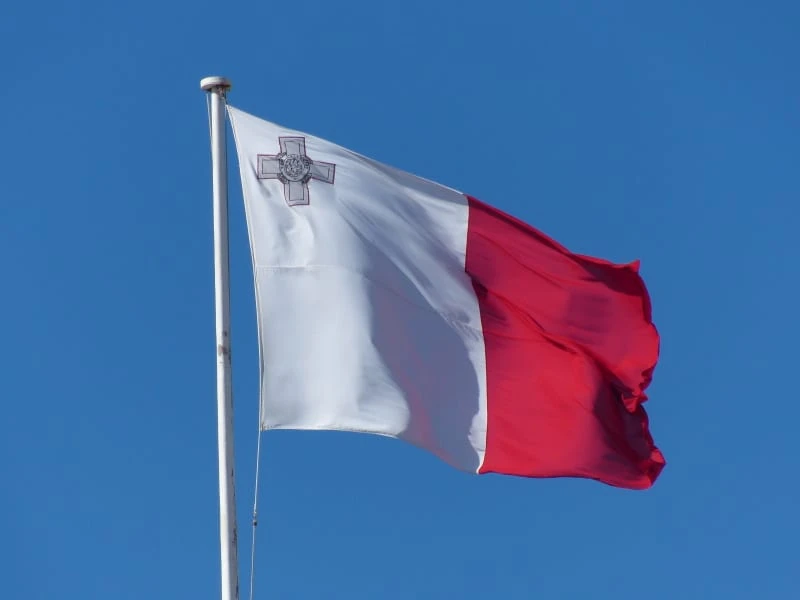What’s behind Malta’s disagreement with the European Commission?

On Wednesday the European Commission wrote a formal letter to Malta’s government over concerns Article 56A in the country’s Gaming Act does not comply with European law.
Article 56A was introduced as an amendment to Malta’s gambling act in 2023, seeking to protect Malta-licensed gaming companies in the event of being sued in another European jurisdiction for providing their services. The clause insisted that Malta would not uphold any European court judgment that deemed their services illegal in that market.
The clause is a reflection of Malta’s interpretations of the EU’s Treaty on the Functioning of the European Union (TFEU), which Malta says gives provision for services (like online gambling) to be provided across EU states.
How did we get here?
The implementation of Article 56A stems from Malta’s interpretation of the EU’s TFEU, which the commission has said the market is failing to comply with.
In its interpretation, Malta believes its locally licensed operators should have freedom of movement to operate across Europe.
In February, a Maltese Civil Court ruled it would not enforce Austrian court judgments in favour of players being awarded refunds for gambling on Malta-licensed gambling sites.
Germany’s sector has faced similar confusion over Malta’s interpretation of the TFEU. Many player losses cases against Malta licensees have stalled in regional courts in Germany, as the operators involved argue they are protected by Malta’s Article 56A.
Recently a number of these cases were progressed to the European Court of Justice (ECJ), as regional courts could not make a formal decision on this interpretation of EU law.
The ECJ, a court within the CJEU, opened a hearing into the matter in April, asking whether German regulations contradict European law. An update is expected in July, and legal experts in Germany believe it could have huge implications for the player losses cases in the country, particularly if the court sides with the European Commission.
Article 56A ‘shields iGaming from cross-border litigation’
In the commission’s letter, published on 18 June, it argued Article 56A unfairly shielded Malta licensees against legal challenges brought by other EU markets, and therefore “undermined the principle of mutual trust in the the administration of justice”.
“It also violates the prohibition on reviewing judgments from other member states on their substance, exceeds the limits of the public policy exception and distorts the EU’s rules on jurisdiction.”
The commission also flagged Malta was discouraging foreign litigants – those involved in a lawsuit – from pursuing legal action in Maltese courts against local licensees. This, it said, is despite EU rules designating such courts as an appropriate forum based on a defendant’s country of residence.
Writing to Malta, the European Commission has given the country two months to respond to its letter and address the issues raised, namely its failure to recognise court judgments made against Malta licence holders.
The commission said it may proceed with a formal request for Malta to comply with EU law if it fails to address the “shortcomings” raised in the letter.
Malta rejects European Commission criticism of Article 56A
Responding to the notice, the Malta Gaming Authority (MGA) defended its laws and upheld its belief the TFEU enables its services to be offered across the EU.
“Malta has consistently held that any unjustified restrictions – whether direct or indirect – on the freedom to provide services and the freedom of establishment within the EU internal market, run directly counter to the case law of the CJEU, and create a clear barrier to market access and trade within other member states,” the MGA said in a statement.
It maintained Article 56A does not impose a blanket ban on European judgments against Maltese-licensed companies. Nor, it said, does it shield them from legal action in other EU courts.
Instead, the MGA said it confirms Malta’s long-standing public policy on online gaming and reflects existing rules under EU law. The regulator added that the law does not introduce new or separate grounds to reject foreign judgments.
The MGA insisted Malta’s gaming framework promotes responsible gambling and safeguarding all players regardless of their country of residence. It said this is reflected in operator licences being based as point-of-supply and allowing holders to offer services cross-border.
The MGA added that as an EU member state, Malta has established regulations in line with core EU principles. This includes the Court of Justice of the European Union (CJEU) and Treaty on the Functioning of the European Union (TFEU).
The MGA added it will continue to support Malta’s government on “open and constructive” dialogue with the commission.
View from inside the MGA
Speaking to iGB in May, James Baldacchino, general counsel at the MGA, maintained the regulator’s interpretation of the TFEU.
“Within the EU context, Maltese licensees operate from and within Malta in line with the freedoms set out in the TFEU, most notably the freedom of establishment and the freedom to provide services within the internal market, provided that they continue to comply with Maltese regulatory and legal requirements,” he said.
However, he acknowledged Malta licensees must comply with EU member states’ gambling licensing frameworks, when they adhere to laws upheld by the CJEU.
“Where the restrictions are not in line with CJEU jurisprudence, then on the basis of the general principle that the fundamental freedoms must be respected, our view remains that there exists a justifiable legal reason for a Maltese licensee to offer its services in that member state, particularly in accordance with the freedom to provide services.”
Edit: This story has been updated to clarify that the Maltese Court did not enforce Article 56A within its ruling to not enforce Austrian court judgments. This instead relates to Article 45 of the TFEU.
